Recent publications (33)
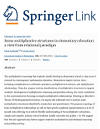
Polotskaia, E., Fellus, O. O., Cavalcante, A., & Savard, A. (2022). Students’ Problem Solving and Transitioning from Numerical to Relational Thinking. Canadian Journal of Mathematics, Scienc and Technology Education.
https://link.springer.com/content/pdf/10.1007/s42330-022-00218-1.pdf
Online: https://link.springer.com/article/10.1007/s42330-022-00218-1
Abstract: The transition from arithmetic to algebra in middle school can be critical for students having persistent difficulties in mathematics. The leading perception in our project is that holistic relational thinking is an effective… → Continue reading

Anwandter Cuellar, N. S., Passaro, V., & Polotskaia, E. (2022). La Genèse De La Pensée Algébrique Chez Les Enfants De Trois À Huit Ans. Une Revue De La Littérature Scientifique. Canadian Journal of Mathematics, Science and Technology Education, 0123456789.
https://doi.org/10.1007/s42330-021-00185-z
Dans cet article, nous présentons les résultats d’une synthèse des connaissances visant à donner un portrait inédit des recherches sur la pensée algébrique chez les enfants de trois à… → Continue reading

Polotskaia, E., & Savard, A. (2021). Some multiplicative structures in elementary education: a view from relational paradigm. Educational Studies in Mathematics, 106, 447–469. https://doi.org/10.1007/s10649-020-09979-8
The multiplicative reasoning that students should develop in elementary school is a key area of research in contemporary mathematics education. Researchers employ various views including multiplication as arithmetic operation, multiplicative structures, and multiplicative relationships. They also propose various classifications of multiplicative structures to support… → Continue reading
Polotskaia, E., & Savard, A. (2021). Shifting paradigms in word problem solving. The case of multiplicative structures. In J. Navotna & H. Maraova (Eds.), Proceedings of the International Symposium Elementary Mathematics Teaching (pp. 328–337). Charles University – Faculty of Education.
Abstract: This paper reports on our second study on elementary student relational thinking development through problem solving. We designed and implemented fifteen learning activities to direct students’ attention from numbers… → Continue reading
Polotskaia, E., Savard, A., & Nadon, C. (2021). La résolution de problèmes mathématiques et l’art de la représentation. For the Learning of Mathematics, 41(3), 16–19.
Résumé: Les recherches en enseignement des mathématiques suggèrent que l’apprentissage de la résolution de problèmes devrait impliquer la modélisation et la représentation visuelle. Dans cet article, nous discutons comment une méthode de représentation spécifique peut jouer presque comme un art dans le processus d’analyse et… → Continue reading
Tremblay, S., Polotskaia, E., & Passaro, V. (2020). Réflexion autour du rôle du symbolisme littéral dans le développement de la pensée algébrique au primaire. Revue Québécoise de Didactique Des Mathématiques, 2, 78–109.
Résumé: Cet article a pour objectif de discuter le rôle de l’utilisation des lettres dans la formation de la pensée algébrique chez les élèves du primaire. La question de l’utilisation de lettres lors de l’apprentissage des mathématiques au… → Continue reading
Pelczer, I., Polotskaia, E., & Fellus, O. (2020). La résolution des problèmes écrits: L’étude auprès d’une élève présentant une dyslexie. McGill Journal of Education, 55(2), 326–351.
Résumé: Dans nos projets antérieurs, nous avons développé une approche à l’enseignement de résolution de problèmes écrits permettant aux élèves de mieux comprendre les relations quantitatives qui se présentent dans un problème et ainsi de mieux planifier leur démarche de résolution. Nous avons utilisé… → Continue reading

Polotskaia, E., & Savard, A. (2020). Some multiplicative structures in elementary education: a view from relational paradigm. Educational Studies in Mathematics, 1–23. https://doi.org/10.1007/s13595-020-00956-y
Abstract: The multiplicative reasoning students should develop in elementary school is one of the key research areas in contemporary mathematics education. Researchers employ various views including multiplication as arithmetic operation, multiplicative structures, and multiplicative relationships. They also propose various classifications of multiplicative structures to support students’ development… → Continue reading
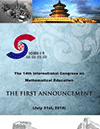
Passaro, V., Polotskaia, E., & Javaherpour, A. (2020, accepted). Cognitive routes of algebraic thinking in preschool and elementary school: Litterature review. In The 14th International Congress on Mathematical Education. Shanghai.
Abstract : The gap between students’ knowledge in arithmetic that is developed in elementary school and algebraic reasoning they are expected to develop in secondary school has been identified as a problem area in ICME-13. In recent years, many researchers have… → Continue reading
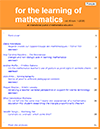
Polotskaia, E. (2020). Regards croisés sur l’apprentissage des mathématiques. Le cas de la Théorie des situations didactiques et de la Théorie de l’instruction développementale. For the Learning of Mathematics, 40(1), 2–8. Retrieved from https://flm-journal.org/Articles/2F9F2C8FBD23484E62D5124F0E17B5.pdf
Abstract : Dans ce texte, je propose de s’interroger sur la Théorie des situations didactiques (Brousseau, 2004) et la Théorie de l’instruction développementale (Davydov, 2008). Ces deux théories sont assez connues dans le domaine de l’éducation, mais… → Continue reading

Polotskaia, E., Savard, A., Cavalcante, A., & Fellus, O. (2019). Middle School students’ difficulties in problem solving and their roots in elementary education: What went wrong for them? In SEMT 2019 (pp. 1–10). Prague, Czech Republic.
Abstract : Problem solving is identified as key in learning mathematics. However, problem solving still remains a source of challenges and difficulties to many students. The purpose of this research is to turn attention to… → Continue reading

Polotskaia, E., Savard, A., & Freiman, V. (2017). La genèse du raisonnement algébrique au début de l’apprentissage des mathématiques. Nouveaux Cahiers de La Recherche En Éducation, 20(3), 79–105.
Résumé : Cet article présente une analyse rétrospective de l’expérimentation réalisée auprès d’élèves du premier cycle du primaire (6 à 8 ans) au Québec pendant trois ans. Inspirés par les travaux de V. Davydov, nous avons conçu des activités de résolution de problèmes… → Continue reading
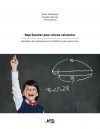
Polotskaia, E., Gervais, C., & Savard, A. (2019). Représenter pour mieux raisonner. Montréal, QC: JFD
- 2.1 Avant-propos : Daniel, mon fils de 6 ans, fait ses devoirs. Il est penché sur son cahier, absorbé complètement par le travail.« Qu’est-ce que tu fais mon grand? »« Je fais un problème mathématique. »Curieuse, je regarde par-dessus de son épaule. Daniel dessine des fleurs, toutes en couleur, avec les pétales bien ronds. Il… → Continue reading
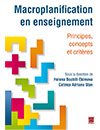
Polotskaia, E. (2018). Planification à long terme et la résolution de problèmes: une réflexion sur l’expérimentation réalisée au premier cycle du primaire. In H. Boublil-Ekimova & C. A. Stan (Eds.), Macroplanification en enseignement. Principes, concepts et critères (pp. 55–74). Québec, QC: Presses de l’université Laval.
Abstract : Lors d’un projet de recherche sur l’enseignement et l’apprentissage des structures additives au premier cycle du primaire, j’ai étudié les élèves en… → Continue reading
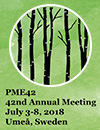
Polotskaia, E., Cavalcante, A., & Savard, A. (2018). Visual representations of multiplicative relationships by students learning mathematics. In PME42 (Vol. 1). Umea, Sweden.
Abstract: Recent studies (e.g. Moyer-Packenham, Ulmer & Anderson, 2012) associate improvement in students’ mathematical achievement with the integration of visual models and schematic drawing in the process of teaching and learning. However, while some studies focus on using visual representations mostly for teaching number sense and… → Continue reading
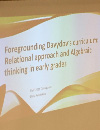
Polotskaia, E., & Sabena, C. (2018). Colloquium: Foregrounding Davydov’s curriculum: Relational approach and algebraic thinking in early grades. In PME42. Umea, Sweden.
Abstract: Based on a dialectical materialist theoretical understanding of humans and the world, Vasily Davydov (2008) articulated an educational program known as the Elkonin-Davydov curriculum that features a theory of developmental instruction. Two of the chief ideas of this theory are (1) a relational approach to number… → Continue reading

Polotskaia, E., Savard, A., Gélinas, M.-S., & Fellus, O. (2018). Multiplicative structures in elementary school mathematics: Relational approach. In PME42. Umea, Sweden.
Abstract: In this theoretical essay, we critically analyze some multiplicative structures identified by researchers and practitioners in the field of teaching elementary school mathematics (grades 3-5). Drawing upon Davydov’s theory of developmental instruction, we use the relational perspective and propose another classification and graphical representations of multiplicative… → Continue reading
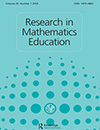
Polotskaia, E., & Savard, A. (2018). Using the Relational Paradigm: effects on pupils’ reasoning in solving additive word problems.Research in Mathematics Education, 20(1). https://doi.org/10.1080/
Abstract: Pupils’ difficulties in solving word problems continue to attract the attention of researchers. While researchers highlight the importance of relational reasoning and modelling, school curricula typically use short word problems to develop pupils’ knowledge of arithmetic operations and calculation strategies. The… → Continue reading
1. Polotskaia, E. (n.d.). Planification à long terme et la résolution de problèmes: une réflexion sur l’expérimentation réalisée au premier cycle du primaire. In Conceptualisation et enseignement. Planifier et enseigner à partir des concepts. Québec: Presses de l’université Laval.
- 1.1 Résumé : Lors d’un projet de recherche sur l’enseignement et l’apprentissage des structures additives au premier cycle du primaire, j’ai étudié les élèves en processus de développement du raisonnement mathématique… → Continue reading
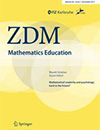
Freiman, V., Polotskaia, E., & Savard, A. (2017). Using a computer-based learning task to promote work on mathematical relationships in the context of word problems in early grades. ZDM Mathematics Education, 0(0), 1–15. https://doi.org/10.1007/s11858-017-0883-3
Abstract: In Canada, as in other Western countries, solving word problems has comprised an important part of mathematics curricula. Traditionally, arithmetic thinking has largely been privileged as the main strategy to solving… → Continue reading
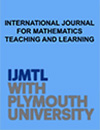
Polotskaia, E. (2017). How the relational paradigm can transform the teaching and learning of mathematics: Experiment in Quebec. International Journal for Mathematics Teaching and Learning, 18(2), 161–180. Retrieved from http://www.cimt.org.uk/ijmtl/index.php/IJMTL
Abstract: The main goal of this paper is to show how Vasily Davydov’s powerful ideas about the nature of mathematical thinking and learning can transform the teaching and learning of additive word problem solving. The name… → Continue reading

Savard, A., & Polotskaia, E. (2017). Who’s wrong? Tasks fostering understanding of mathematical relationships in word problems in elementary students. ZDM Mathematics Education, 0(0), 0. https://doi.org/10.1007/s11858-017-0865-5
Abstract: Mathematical relationships are crucial elements to consider for learning mathematics. However, too often students pay more attention to the calculations to be done rather than the reasons for doing them. Relying on the relational paradigm to support elementary school… → Continue reading
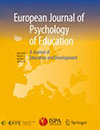
Polotskaia, E., Savard, A., & Freiman, V. (2016). Investigating a case of hidden misinterpretations of an additive word problem: structural substitution. European Journal of Psychology of Education, 31(2), 135–153. https://doi.org/10.1007/s10212-015-0257-6
Abstract: According to numerous studies (Barrouillet & Camos 2002; Brousseau 1988; Chevallard 1988; Riley et al. 1984; Schubauer-Leoni & Ntamakiliro, Revue Des Sciences de L’éducation, 20(1): 87–113, 1994; Vergnaud 1982; Xin, The Journal of Educational Research,… → Continue reading
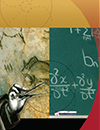
Polotskaia, E., & Freiman, V. (2016). Technopédagogie et apprentissage actif. Bulletin AMQ, LVI(3), 55–69.
https://www.amq.math.ca/wp-content/uploads/bulletin/vol56/no3/07-contribution-appuyer-apprentissage.pdf
Résumé : Nous allons présenter une ressource Web interactive disponible gratuitement qui peut être utilisée pour organiser l’exploration par l’élève de problèmes ayant les structures additives. Après avoir essayé de résoudre un problème à l’ordinateur, l’élève partage ses démarches avec ses pairs. Une discussion collective des stratégies de résolution efficaces stimulera la… → Continue reading

Polotskaia, E., Savard, A., & Freiman, V. (2016). Investigating a case of hidden misinterpretations of an additive word problem: structural substitution. European Journal of Psychology of Education, 31. (2), 135–153. https://link.springer.com/article/10.1007%2Fs10212-015-0257-6
Abstract: According to numerous studies (Barrouillet & Camos 2002; Brousseau 1988; Chevallard 1988; Riley et al. 1984; Schubauer-Leoni & Ntamakiliro, Revue Des Sciences de L’éducation, 20(1): 87–113, 1994; Vergnaud 1982; Xin, The Journal of Educational… → Continue reading
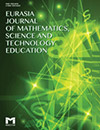
Polotskaia, E., Savard, A., & Freiman, V. (2015). Duality of Mathematical Thinking When Making Sense of Simple Word Problems : Theoretical Essay. Eurasia Journal of Mathematics, Science & Technology Education, 11(1), 213–223. https://doi.org/10.12973/eurasia.2015.1325a
Abstract: 7.1.This essay proposes a reflection on the learning difficulties and teaching approaches associated with arithmetic word problem solving. We question the development of word problem solving skills in the early grades of elementary… → Continue reading
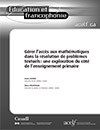
Savard, A., & Polotskaia, E. (2014). Gérer l’accès aux mathématiques dans la résolution de problèmes textuels : une exploration du côté de l’enseignement primaire. Éducation et Francophonie, XLII(2), 138–157. Retrieved from http://www.acelf.ca/c/revue/pdf/EF-42-2-138_SAVARD.pdf
Résumé : Cet article présente la gestion de l’accessibilité aux mathématiques dans la résolution de problèmes textuels ayant des structures additives par des enseignantes de première et de deuxième année du primaire. Nous avons utilisé… → Continue reading

Gervais, C., Savard, A., & Polotskaia, E. (2013). La résolution de problèmes de structures additives chez les élèves du premier cycle du primaire : le développement du raisonnement. Bulletin AMQ, 53(3), 58–66. Retrieved from http://archimede.mat.ulaval.ca/amq/bulletins/oct13/01-maitre-Tdm-oct2013.pdf

Polotskaia, E. (2010). Des représentations graphiques dans l’enseignement des mathématiques-Deux jeux pour apprendre. Bulletin AMQ, L(1)(November), 12–28. Retrieved from http://archimede.mat.ulaval.ca/amq/bulletins/mar10/Article_Polotskaia.pdf
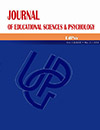
Ducharme, M., & Polotskaia, E. (2010). Two Scenarios for Problem Solving and Pro-algebraic Reasoning Development in Primary School Children. Journal of Educational Science & Psychology, LXII(1), 170–184.
Abstract: In this article we analyse and compare two scenarios of story-problem situations that could support students’ conscious articulation of mathematical structure of a textual problem. One of the possible ways to observe this conscious articulation is through constructing and discussing a diagram… → Continue reading
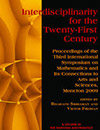
Polotskaia, E. (2009). Why is a negative x a negative = a positive? Possible Benefits of Interdisciplinarity. In B. Sriraman & V. Freiman (Eds.), Interdisciplinarity for the twenty-first century. (pp. 257–278). Charlotte, NC: Information Age Pub.
Abstract: Considering the concept as a mental mechanism, I propose a simple model of concept functionality. From this model follow some criteria of the concept construction conditions. Using this model, I analyse different… → Continue reading
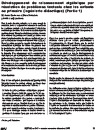
Ducharme, M., & Polotskaia, E. (2009). Développement du raisonnement algébrique par résolution de problèmes textuels chez les enfants au primaire (ingénierie didactique)
2. Envol, GRMS, 146, 33–38.

Ducharme, M., & Polotskaia, E. (2008). Développement du raisonnement algébrique par résolution de problèmes textuels chez les enfants au primaire (ingénierie didactique)
1. Envol, GRMS, 145, 21–27.



